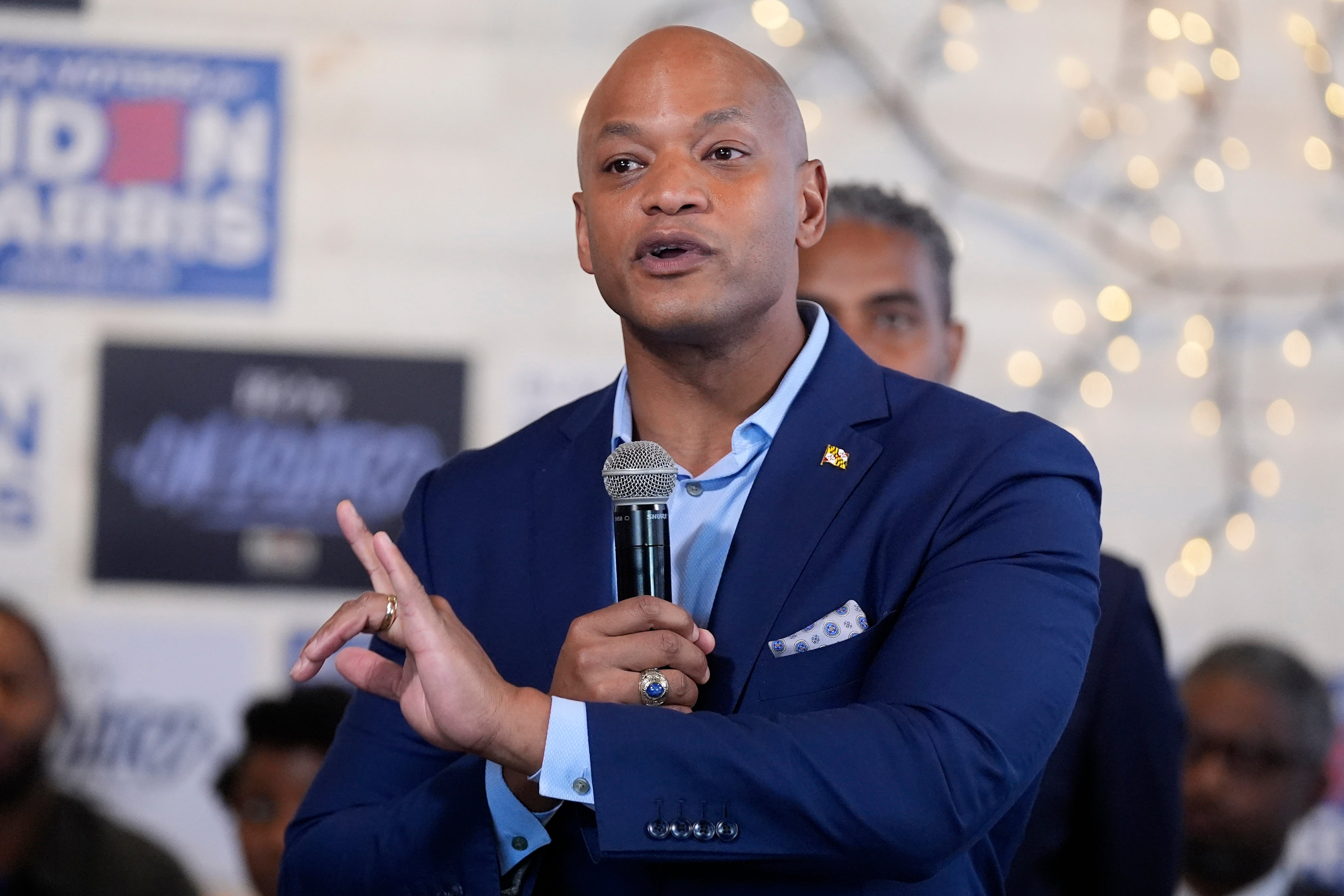Maryland Gov. Wes Moore set to issue 175,000 pardons for marijuana convictions
Maryland Gov. Wes Moore is scheduled to sign an executive order to issue 175,000 pardons for marijuana convictions

Your support helps us to tell the story
From reproductive rights to climate change to Big Tech, The Independent is on the ground when the story is developing. Whether it's investigating the financials of Elon Musk's pro-Trump PAC or producing our latest documentary, 'The A Word', which shines a light on the American women fighting for reproductive rights, we know how important it is to parse out the facts from the messaging.
At such a critical moment in US history, we need reporters on the ground. Your donation allows us to keep sending journalists to speak to both sides of the story.
The Independent is trusted by Americans across the entire political spectrum. And unlike many other quality news outlets, we choose not to lock Americans out of our reporting and analysis with paywalls. We believe quality journalism should be available to everyone, paid for by those who can afford it.
Your support makes all the difference.Maryland Gov. Wes Moore is scheduled to sign an executive order to issue 175,000 pardons for marijuana convictions Monday, according to a news report.
The pardons will forgive low-level marijuana possession charges for an estimated 100,000 people. Moore, a Democrat, told The Washington Post Sunday night that criminal records have been used to deny housing, employment and education.
“I’m ecstatic that we have a real opportunity with what I’m signing to right a lot of historical wrongs,” Moore said. “If you want to be able to create inclusive economic growth, it means you have to start removing these barriers that continue to disproportionately sit on communities of color.”
Recreational cannabis was legalized in Maryland in 2023 after voters approved a constitutional amendment in 2022. Now, 24 states and the District of Columbia have legalized recreational cannabis.
Moore plans to sign the executive order Monday morning in the state Capitol in Annapolis with Maryland Attorney General Anthony Brown in attendance.
Brown, a Democrat, described the pardons as “certainly long overdue as a nation” and “a racial equity issue.”
“While the pardons will extend to anyone and everyone with a misdemeanor conviction for the possession of marijuana or paraphernalia, this unequivocally, without any doubt or reservation, disproportionately impacts — in a good way — Black and Brown Marylanders,” Brown told the Post.